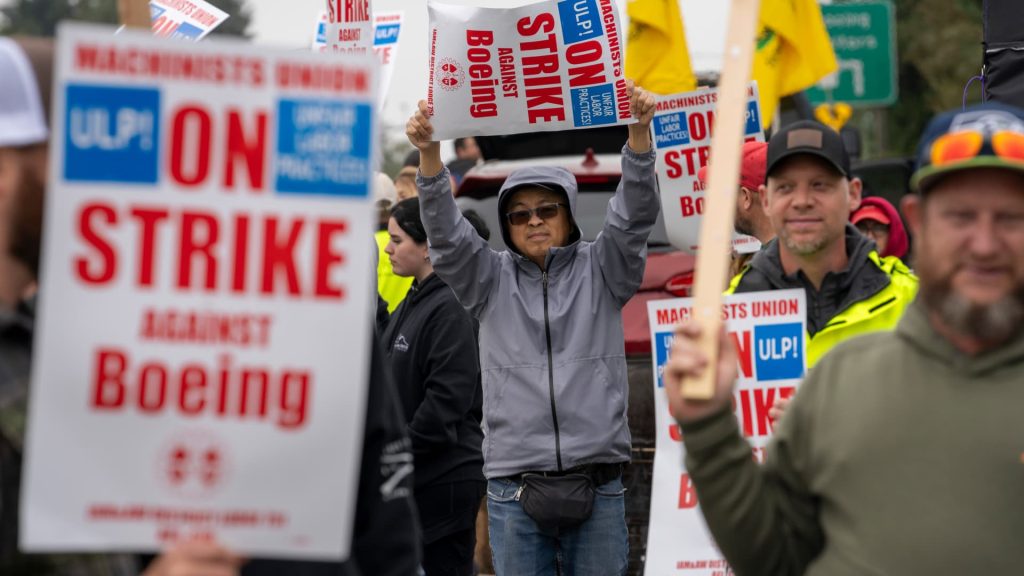Boeing has withdrawn a contract offer for 33,000 machinists who have been on strike since mid-September, stating that further negotiations do not make sense at this point. The machinists walked off the job on Sept. 13 after rejecting a tentative labor deal, halting production of most of Boeing’s aircraft made in the Puget Sound area. Despite Boeing sweetening the offer with increased pay raises and other improvements, the union argued that it was not negotiated. Talks broke down again this week, prolonging the strike which will cost Boeing more than $1 billion per month, leading to a negative outlook for the company’s credit ratings.
Stephanie Pope, CEO of Boeing’s commercial aircraft unit, stated that the company had improved contract pay during recent talks, but the union did not consider the proposals. Pope claimed that the union made non-negotiable demands that exceeded what Boeing could accept to remain competitive as a business. The International Association of Machinists and Aerospace Workers, representing the striking machinists, said that Boeing refused to improve wages, retirement plans, and vacation or sick leave. This ongoing conflict has led to a continued stalemate with no new agreement in sight.
The strike has had a significant impact on Boeing’s production and financial outlook. With production halted for most of Boeing’s aircraft, the company is facing significant losses due to the strike. S&P Global Ratings has estimated that the stoppage will cost Boeing more than $1 billion per month. This loss of production and revenue has led to a negative outlook for Boeing’s credit ratings, further adding to the challenges the company faces as a result of the strike.
Both Boeing and the union have been involved in negotiations to try to resolve the conflict and end the strike. Despite Boeing’s efforts to improve contract pay and make other concessions during talks this week, the union has accused the company of refusing to meet their demands for better wages, retirement plans, and leave benefits. The union has also claimed that Boeing’s proposed concessions were far below what is necessary for them to remain competitive in the industry, leading to a breakdown in negotiations and the continuation of the strike.
The prolonged strike has created a challenging situation for both Boeing and the striking machinists. With no new agreement in sight and both sides at an impasse, the strike is set to continue, causing further financial losses and production delays for Boeing. The company will need to find a way to resolve the conflict and reach a new agreement with the union in order to end the strike and resume production of its aircraft. As the strike continues, both Boeing and the striking machinists will need to find a way to address their differences and come to a resolution that is acceptable to both parties.
In conclusion, the ongoing strike by 33,000 machinists at Boeing has had a significant impact on the company’s production, financial outlook, and credit ratings. Despite efforts to improve contract pay and make concessions during negotiations, Boeing and the union representing the striking workers have been unable to reach an agreement to end the strike. With no new agreement in sight and both sides at an impasse, the strike is set to continue, leading to continued losses for Boeing and challenges for both parties involved. Ultimately, resolving the conflict and finding a way to end the strike will be crucial for Boeing to resume normal operations and maintain its competitiveness in the aerospace industry.















